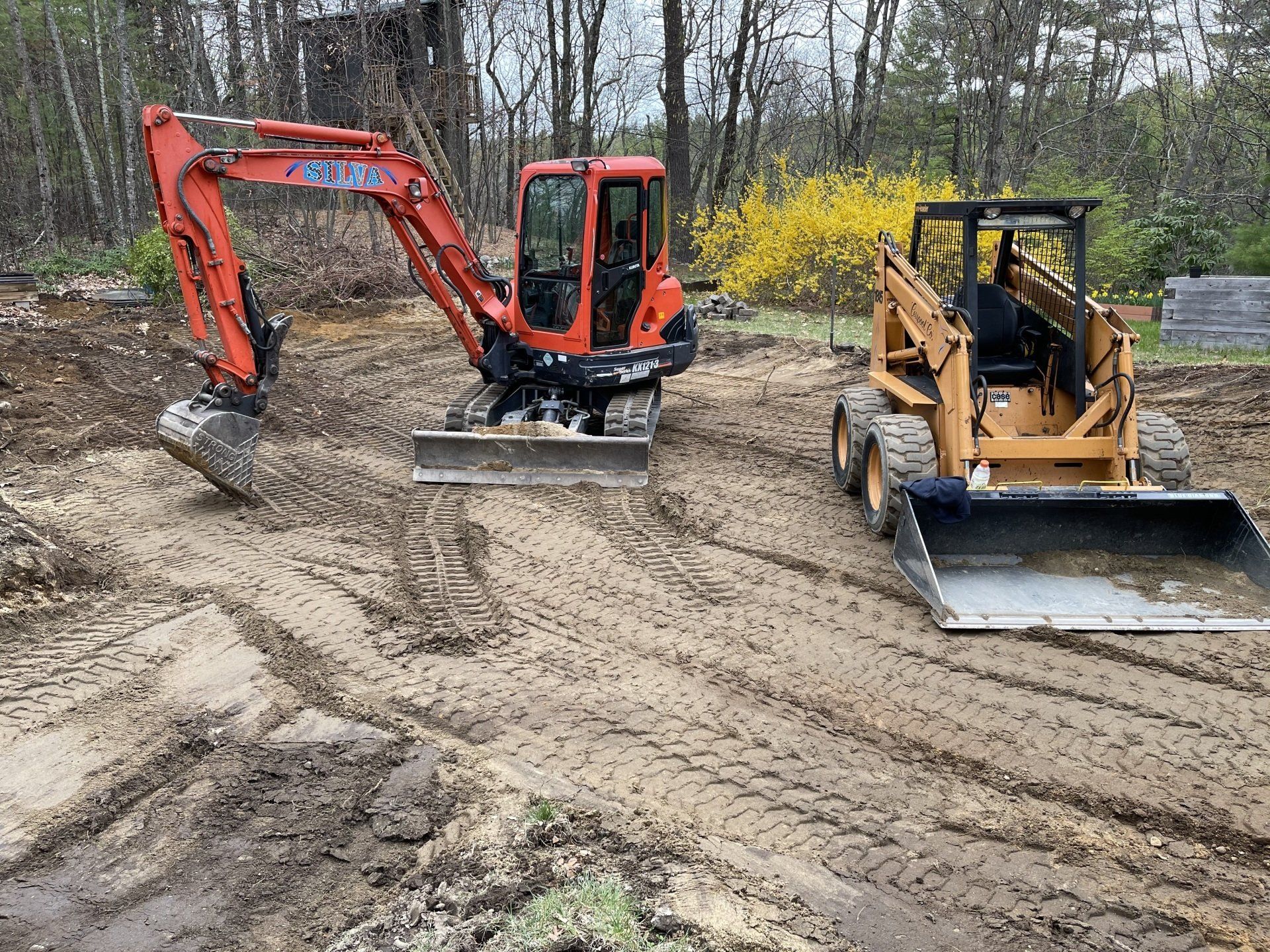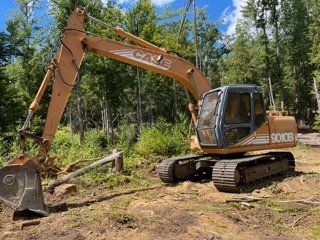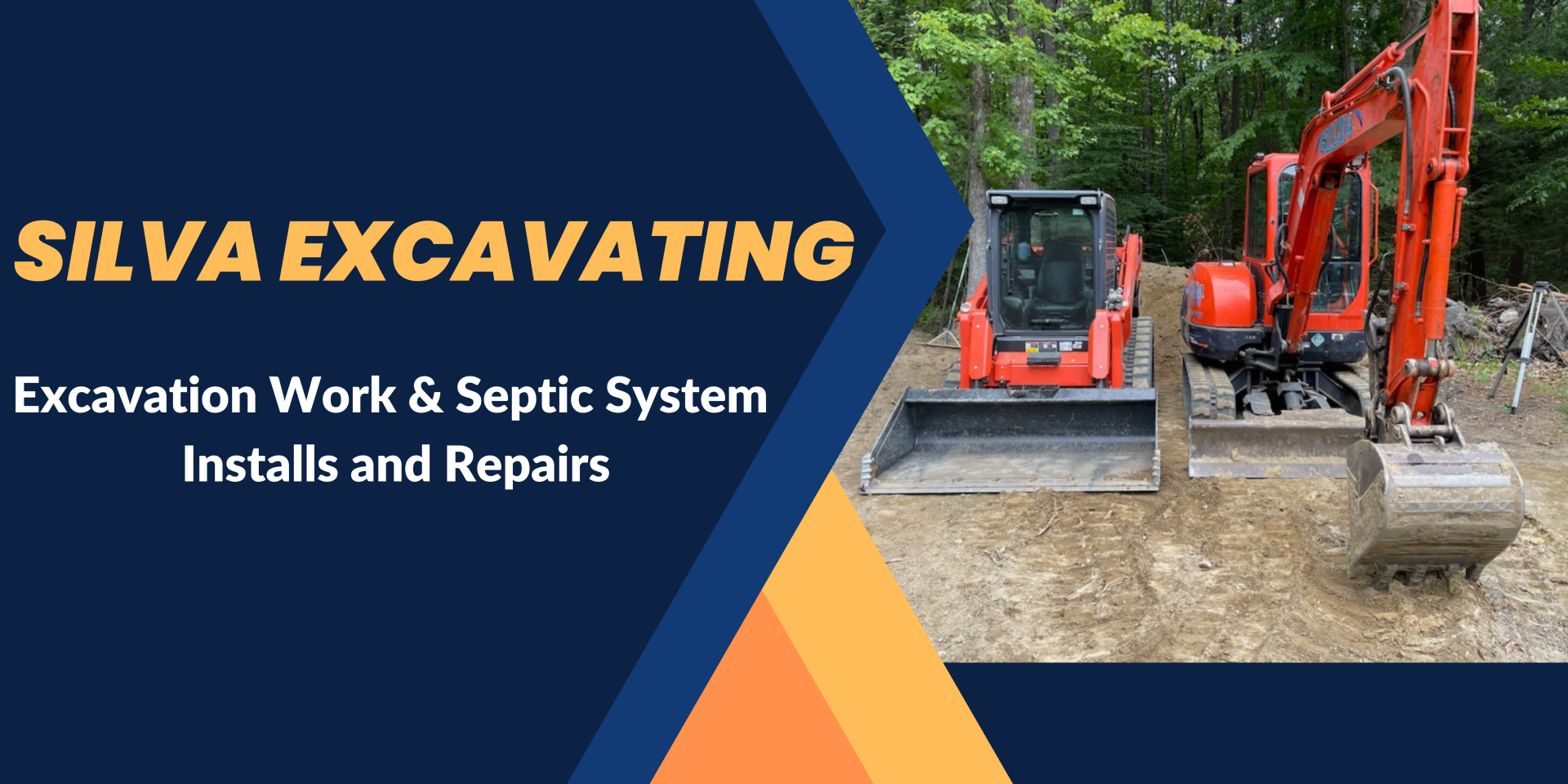Top Excavation Contractors Near Me – Find Now!
Looking for reliable excavation contractors near me to handle your next big project? Our team of experienced excavation contractors near me offers top-notch services with a commitment to safety and efficiency.
If you're looking for reliable and affordable excavation contractors near you, you've come to the right place. Whether you're planning a construction project, landscaping, or need assistance with drainage or utility installations, finding the right excavation contractor is key to ensuring a successful outcome. In this article, we will guide you on how to find the top excavation contractors in your area and help you understand their role in your project.
Key Takeaways:
- Finding the right excavation contractor is crucial for a successful project.
- Assess your project needs before searching for excavation services.
- Research excavation contractors through online directories, recommendations, and reviews.
- Compare services, request quotes, workmanship, and evaluate pricing, expertise, and availability.
- Properly prepare for excavation work and oversee the progress and quality of the project.
Understanding the Role of Excavation Contractors
Before you start searching for excavating contractor, it's important to understand their role and the services they provide. In this section, we will explain what excavation contractors do, their responsibilities, and the importance of hiring experienced professionals for your excavation needs.
Excavation contractors are skilled professionals who specialize in earth-moving and site preparation. They play a crucial role in various construction projects, from residential developments to commercial buildings and infrastructure projects.
Here are some key responsibilities of excavation contractors:
- Site Preparation: Excavation contractors assess the construction site and perform necessary groundwork, including clearing debris, leveling the land, and removing any obstacles that could impede the construction process.
- Excavation: Once the site is prepared, excavation contractors use heavy machinery to dig and remove soil, rocks, and other materials to create a foundation or trench for the construction project.
- Trenching and Grading: Excavation contractors expertly carve out trenches for utility lines such as water pipes, sewage systems, and electrical cables. They also ensure proper grading to ensure proper drainage and prevent water accumulation.
- Landscaping and Land Clearing: Excavation contractors can also assist with landscaping projects, such as clearing land for gardens, ponds, or recreational areas. They can remove trees, stumps, and other vegetation to create a clean and leveled space.
Hiring experienced and reputable excavation companies is vital for the success of your project. Here's why:
"Excavation work involves heavy machinery and complex operations. Hiring experienced professionals who can do residential and commercial ensures the work is done efficiently, safely, and according to regulations. They have the expertise to handle unexpected challenges and deliver high-quality results."
Benefits of Hiring Experienced Excavation Contractors:
1. Expertise in site preparation and excavation techniques
2. Knowledge of safety regulations and proper equipment usage
3. Ability to handle unexpected challenges and make necessary adjustments
4. Efficient and timely completion of excavation work
5. Quality assurance and reliable results
Assessing Your Project Needs
When it comes to finding the right excavation contractor for your project, assessing your needs is a crucial first step. By evaluating your excavation requirements, you can ensure that you hire a contractor who is equipped to handle the scope of work and any specific considerations based on your location.
Site Inspection: Start by conducting a thorough site inspection. This will help you identify any potential challenges or limitations that may impact the excavation process. Take note of existing structures, utilities, and any other factors that may require special attention.
Scope of Work: Determine the scope of work for your project. This includes understanding the size of the excavation area, the depth of the excavation, and any specific requirements or specifications that need to be met. Clearly defining the scope of work will help you communicate your needs effectively to potential contractors.
Specific Considerations: Consider any specific considerations based on your location. This may include factors such as soil composition, environmental regulations, or permits that may be required. Being aware of these considerations will ensure that the excavation contractor you choose is familiar with the requirements and can fulfill them accordingly.
By assessing your project needs, you will have a clear understanding of what you require from an excavation contractor. This knowledge will guide you in finding the right professional who can meet your expectations and deliver excellent results.
Assessment Checklist:
| Tasks | Completed |
|---|---|
| Conduct a site inspection | Yes |
| Determine the scope of work | Yes |
| Consider specific location-based factors | No |
Researching Excavation Contractors
Researching excavation contractors near you is crucial to finding reliable and affordable professionals for your project. By taking the time to gather information and assess their qualifications, you can make an informed decision. Here are some useful tips on how to find top excavation contractors:
- Online Directories: Utilize online directories that provide listings of excavation contractors in your area. These directories often include detailed profiles, customer reviews, and ratings to help you narrow down your options.
- Recommendations: Seek recommendations from friends, colleagues, or neighbors who have previously hired excavation contractors. Their firsthand experiences and insights can provide valuable guidance in your search.
- Reviews and Testimonials: Check online reviews and testimonials from previous clients of excavation contractors. Pay attention to their satisfaction level, the quality of their work, and their reliability. Positive feedback and high ratings can indicate a reputable contractor.
Once you have identified potential excavation contractors, it's important to assess their experience, licenses, and insurance coverage to ensure a reliable and professional service.
Consider the following factors:
- Experience: Look for contractors with extensive experience in excavation projects similar to yours. Experienced contractors are more likely to handle challenges effectively and deliver satisfactory results.
- Licenses: Verify that the excavation contractor holds the necessary licenses and certifications required by your local authorities. This ensures that they adhere to industry standards and regulations.
- Insurance Coverage: Confirm that the contractor has comprehensive liability insurance and workers' compensation coverage. This protects you from any potential accidents or damages that may occur during the excavation process.
Remember, thorough research is key to finding the right excavation contractor for your project. Don't hesitate to ask for references and speak directly with previous clients to gather additional insights and assess the contractor's reputation.
Selecting the Right Excavating Contractor
Once you have a shortlist of potential excavation contractors, it's time to select the right one for your project. Making an informed decision requires careful evaluation of various factors, including contractor services, pricing, expertise, and availability. Follow these steps to ensure you choose the best excavation contractor for your needs:
Step 1: Compare Services
Start by comparing the services offered by each excavation contractor. Look for contractors who specialize in the type of excavation work you require. Do they offer additional services such as site preparation or demolition? It's important to find a contractor with the capabilities to meet all your project requirements.
Step 2: Request Quotes
Reach out to the shortlisted contractors and request detailed quotes for your project. Provide them with accurate information about the scope of work, site conditions, and any specific requirements. Evaluating quotes will help you determine the affordability and overall cost of each contractor's services. You can also check other websites like Silva Excavating who offers free estimates.
Step 3: Evaluate Pricing
While affordability is a crucial factor, it shouldn't be the sole determining factor. Consider the pricing structure of each excavation contractor and ensure that it aligns with the quality of their services. Be cautious of extremely low-priced contractors, as they may compromise on quality. Look for a balance between affordability and expertise.
Step 4: Assess Expertise
Assess the expertise and experience of each excavation contractor. Look for their certifications, licenses, and qualifications. It's important to choose a contractor with a proven track record in the industry. Check for any industry affiliations or awards that reflect their commitment to excellence.
Step 5: Check Availability
Consider the availability of each contractor. Determine if their schedule aligns with your project timeline. Some contractors may be booked up for months in advance, while others can accommodate your project immediately. It's essential to choose a contractor who can prioritize your project and meet your desired deadlines.
By following these steps and thoroughly evaluating each potential contractor, you'll be well-prepared to make an informed decision. Remember, it's important to choose a contractor who not only meets your budgetary requirements but also possesses the necessary experience, expertise, and availability to deliver exceptional results for your excavation project.
Preparing for Excavation Work
Before the excavation work begins, it is crucial to make adequate preparations to ensure a smooth and successful project. By taking the necessary steps beforehand, you can minimize potential issues, ensure the safety of workers and the surrounding area, and avoid unnecessary delays. Here is a checklist of tasks to complete before excavation work commences:
- Obtain Necessary Permits: Contact your local government or relevant authorities to acquire the required permits for your excavation project. These permits help ensure compliance with regulations and safety standards.
- Mark Utilities: Before excavation begins, it is essential to identify and mark the location of underground utilities. This includes electrical lines, water pipes, gas lines, and telecommunications cables. By doing so, you can help prevent accidental damage during excavation.
- Ensure Safety Measures: Prioritize the safety of all individuals involved in the excavation project. Implement proper safety protocols, provide necessary safety equipment such as hard hats and reflective vests, and establish emergency response procedures.
- Secure Equipment and Materials: Make sure you have all the necessary equipment and materials ready for the excavation work. This includes machinery such as excavators, loaders, and dump trucks, as well as any additional materials needed for the project.
- Communicate with Excavation Contractors: Maintain open and clear communication with your chosen excavation contractors to synchronize schedules, discuss project requirements, and address any concerns or specific needs.
By completing these preparatory tasks, you can set the stage for a successful excavation project. Adequate preparations ensure that the excavation work is carried out efficiently, safely, and in compliance with regulations.
Overseeing Excavation Work
While the excavation contractor takes care of the actual work, it's crucial for you to oversee the progress and quality of the project. By effectively communicating with your contractor, monitoring the excavation process, and promptly addressing any concerns, you can ensure a successful outcome.
Communicating Effectively
Clear and open communication with your excavation contractor is key to a smooth project. Here are some tips:
- Establish a primary point of contact with the contractor for regular updates.
- Discuss your expectations and goals from the outset to avoid miscommunication.
- Ask questions and seek clarification if something is unclear.
- Provide feedback promptly to keep the project on track.
Monitoring the Excavation Process
Regularly monitoring the progress of the excavation work helps ensure that it aligns with your expectations. Consider the following:
- Visit the site regularly to observe the work being done.
- Take note of any issues or deviations from the agreed-upon plan.
- Keep a record of milestones and completion dates to track progress.
- Ask the contractor for updates on their schedule and anticipated timeline.
Addressing Concerns
If any concerns arise during the excavation process, it's important to address them promptly. Here's what you can do:
- Contact your excavation contractor immediately to discuss the issue.
- Provide clear and specific details about your concerns.
- Listen to the contractor's perspective and work together to find a solution.
- If needed, involve a third party, such as an engineer or inspector, for an unbiased assessment.
Remember, effective oversight of the excavation work helps ensure that the project proceeds smoothly and meets your expectations. By maintaining open communication, monitoring progress, and addressing concerns promptly, you can safeguard the success of your excavation project.
Completion and Post-Project Considerations
After the excavation work is completed, there are several important post-project considerations to ensure a successful outcome. In this section, we will discuss the following:
Post-Project Evaluations
It is advisable to conduct a thorough evaluation of the completed excavation project. This evaluation will help you assess the quality of work delivered by the excavation contractor and identify any areas that may require further attention. Consider the following factors:
- Inspect the completed excavation site to ensure that all specifications and requirements have been met satisfactorily.
- Document any deficiencies or issues that need to be addressed, such as uneven surfaces or inadequate backfilling.
- Compare the final results with the initial project plan, noting any variations or deviations.
Restoring the Site
Proper site restoration is crucial after excavation work is completed. It involves returning the area to its pre-excavation condition and ensuring its safety and aesthetics. Here are some restoration considerations:
- Re-grade the excavated area, if necessary, to restore the natural contours and drainage patterns.
- Dispose of any excess soil, debris, or construction materials according to local regulations and environmental guidelines.
- Replant vegetation or landscape features that were temporarily removed to facilitate excavation, ensuring that the site blends seamlessly with its surroundings.
Cleanup and Inspections
Before finalizing the project, it is essential to address any cleanup requirements and schedule necessary inspections. Follow these steps:
- Remove any leftover equipment, machinery, or temporary structures from the site, ensuring a clean and safe environment.
- Arrange for a final inspection by relevant authorities or third-party inspectors to verify the completion of the excavation work.
- Obtain any necessary certifications or permits to confirm compliance with local building codes and regulations.
Taking the time to complete these post-project considerations will help you wrap up the excavation project successfully, ensuring that all necessary evaluations, restorations, cleanups, and inspections are taken care of.
Conclusion
In conclusion, finding the top excavation contractors near you is crucial for a successful excavation project. By understanding their role, assessing your project needs, researching, and selecting the right contractor, as well as properly preparing for and overseeing the excavation work, you can ensure a smooth and efficient process. Remember to consider post-project considerations for a complete project wrap-up.
For the best excavation contractor services near you, contact Silva Excavating at 978-480-6905 or visit their website at https://www.silvaexcavating.com/.
FAQ
What services does excavation contractor provide?
Excavation contractors are skilled professionals who specialize in site preparation and earthwork. Their services typically include excavation, grading, trenching, land clearing, demolition, and utility installation.
How do I assess my excavation project needs?
Assessing your excavation project involves conducting a site inspection, determining the scope of work, and considering any specific requirements or challenges based on your location. It is advisable to consult with an experienced excavation contractor to evaluate your project needs accurately.
Where can I find excavation services near me?
There are several ways to find excavation contractors near you. You can search online directories, ask for recommendations from friends or colleagues who have had similar projects, or check local business listings. It's also beneficial to read reviews and testimonials to gauge the quality of a contractor's work.
How should I select the right excavation contractor?
To select the right excavation contractor, compare services, request quotes, assess experience, licenses, and insurance coverage. Consider their pricing, expertise, availability, and past projects. It's important to choose a contractor who aligns with your project requirements and budget.
What preparations should I make before excavation work begins?
Before excavation work begins, you need to obtain any necessary permits, identify and mark utility lines, and ensure that proper safety measures are in place. It's also essential to communicate any specific requirements or restrictions to the excavation contractor.
How can I effectively oversee excavation work?
To effectively oversee excavation work, maintain open communication with the contractor, monitor the progress and quality of the project, and address any concerns promptly. Regular site visits and discussions with the contractor will help ensure that the work is progressing as planned.
What post-project considerations should I keep in mind?
After the excavation work is completed, evaluate the project's outcome, ensure that the site is restored properly, and address any additional cleanup or inspections that may be required. It's important to wrap up the project diligently and address any outstanding issues.
Being one of a few excavation companies based out of Pepperell, MA we pride ourselves on providing complete customer satisfaction, quality workmanship with reasonable and affordable pricing. Everyone we work with become long term clients that refer us to many of their friends and family which is how we get much of our business. That's how we know how well we are treating our customers, we exceed their needs and expectations. Nothing is better for our business than referrals, and that's something we don't take lightly. We're proud of the work we do and hope to be able to earn your faith and trust in us. Call us now 978-480-6905



